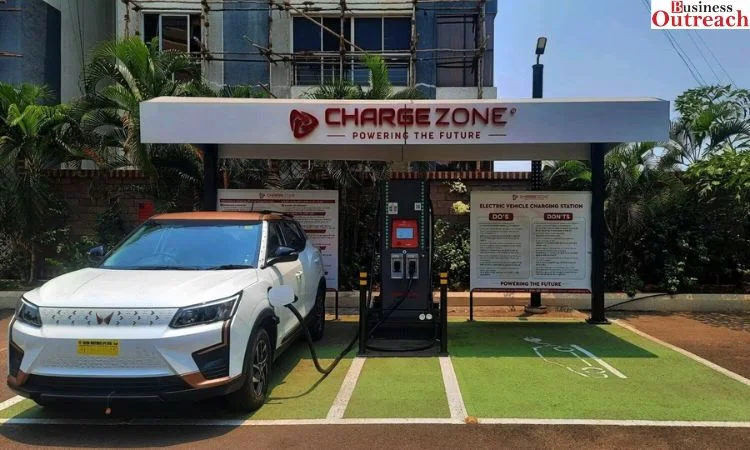Charge Zone, founded in 2019, is a charging infrastructure provider that fuels the electric buses, trucks, and cars via B2B and B2C networks.

Charge Zone, an electric vehicle (EV) charging network, has received a $19 million commitment from the British International Investment (BII), the UK’s development finance organization and impact investor.
BlueOrchard Finance led the Series A1 investment round for the Vadodara-based firm in March of last year, raising $54 million.
Kartikey Hariyani, the founder and CEO of Charge Zone (formerly known as Charge+Zone), stated in a press release that “with this infusion of capital, we will accelerate our efforts in deploying state-of-the-art charging stations, ensuring that EV drivers across the nation experience unparalleled convenience and reliability.”
Charge Zone plans to use the funding to expand its high-speed charging network for the electric cars, buses, and trucks across important towns and highways in India, according to a news statement. It also intends to install more than 1,500 supercharging stations over the following 18 months, with a portfolio of over 10,000 charging stations by 2027.
The six-year-old Charge Zone, led by Kartikey Hariyani, offers super-fast EV charging at over 3,200 terminals spread across 400 locations in India and the UAE. Hyundai, Mahindra & Mahindra, Ashok Leyland, Volvo Eicher, Tata Motors, Marriott, Hyatt, Fortune, and Landmark Group are among the OEMs and e-mobility companies with which the company has formed partnerships.
According to Srini Nagarajan, Managing Director and Head of Asia at BII, “our support of Charge Zone’s expansion will address the challenge of an underdeveloped EV charging infrastructure, facilitate a more sustainable transportation system, and make the EVs a viable and accessible option for many across the country.”
Charge Zone stated that the BII investment is part of a long-term goal to build a network of one million charging points for all 4W vehicle categories, including cars, buses, and trucks, by 2030. It would concentrate on major markets like Delhi, Ahmedabad, Mumbai, Pune, Hyderabad, Bengaluru, and Chennai.
According to startup data intelligence platform TheKredible, the company’s operating revenue increased by nearly thrice to Rs 46.93 crore in the fiscal year ending March 2023. During the period, its losses doubled to Rs 9.89 crore.
In the rapid EV charging area, it competes with ElectricPe, Bolt.Earth, Ather Energy, BluSmart, and Magenta Power, among others.















